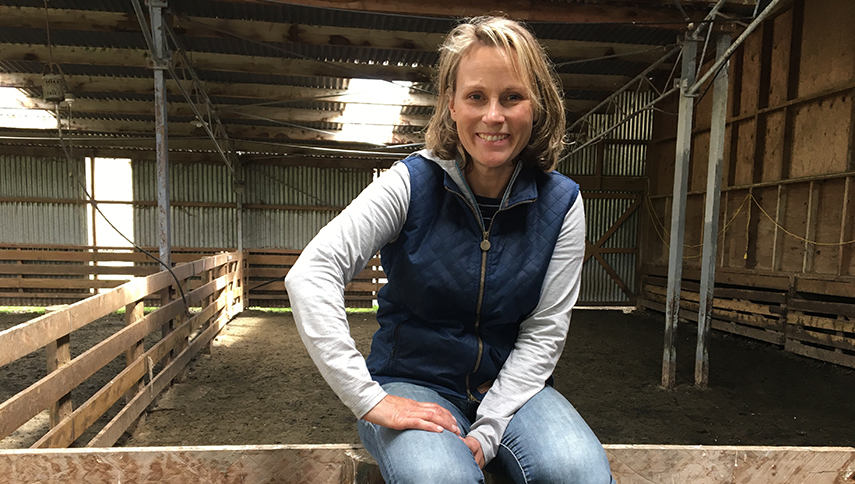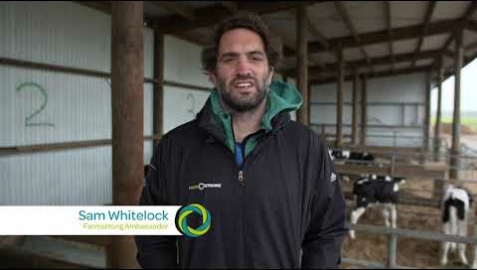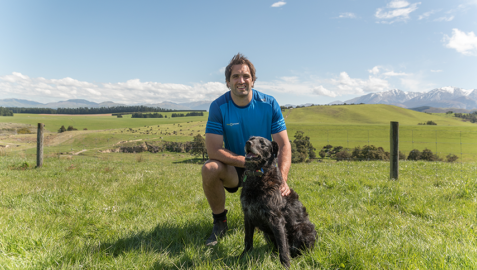
Managing stress and uncertainty
Module Overview
How we think about and deal with pressure has a huge impact on our ability to navigate uncertain times says Clinical Psychologist Sarah Donaldson.
Sarah comes from a sheep and beef farming background and also works for the Rural Support Trust.
Recently she caught up with Farmstrong project lead Gerard Vaughan to chat about what farmers and their families can do to manage the stress of events beyond their control like floods and drought.
Here’s what she had to say.
What is stress?
‘Everyone has different levels of capacity to deal with extra stress and pressures.
The easiest way is to think about it as your coping capacity. We all only have so much coping space and when we have multiple things coming at us, that gets squeezed and shows externally for different people, in different ways. Some people become more tearful or irritable. Others become silent and withdraw.
So if you’ve had a long day on the farm and come in feeling tired and your brain is still worrying about lots of things – e.g Will I have enough feed? What am I going to do with this extra stock I’ve not been able to send of? What will that mean for my profit line? – this can make your brain feel overloaded.’
How can you manage stress?
‘When we are under stress we tend to speed up. It’s important to realise that when we speed up we actually become less productive and more inefficient. You become like a headless chicken running around trying to do lots of different things. Be aware of that and slow down.
You can slow down by doing things that aren’t farm tasks, such as moving your body with exercise or sport or spending time with other people and talking about things other than the farm. It’s also good to have cut- offs on farm.
We need to have a break during the day and at the end of the day so we can get off that treadmill of trying to go faster and faster and becoming less efficient as a result.’
How to handle the what ifs
‘A lot of fatigue happens from being mentally busy if our head is full of worries and what ifs. We definitely need some respite from this.
Sometimes it’s about putting that thinking on hold for a bit and having a break from it. Realising that we may not have a solution right now.
It’s also important to be distracted from that mental chatter and give ourselves a break. That might be gardening, cooking, talking to someone else, doing what we enjoy off farm. Because as soon as we are busy doing something like that, there is less time for that little voice in our head to be chipping away.
Another technique is to ask yourself if what you are thinking is actually helpful to you right now. If you are not going to achieve anything by it, often it is unhelpful.
We want to stop those ‘what ifs’ in their tracks and ask ourselves whether there is a different way to think about the situation.
An example might be telling ourselves, ‘yes, the forecast is pretty bleak right now but actually that’s just the ups and downs of farming, and if I plan ahead early I might be able to mitigate some of those losses.’ That’s a far more helpful way of thinking.
There’s a farmer I heard of who’s decided to put in four more times the winter crop to try and mitigate the effects of drought. It’s something they could proactively do that has given him back a sense of control.
Maintaining a normal routine that sustains you, even if it might need to look a bit different at the moment, will also give you a sense of calm and control.
So will continuing to use your normal social network and support channels to discuss problems. Staying connected with others relieves stress.’
The importance of recovery time
‘It’s really easy to just put your head down and just keep going when you are facing challenging times. But actually that’s not in your best interests. You need to build in time to rest and recover.
Have cut-offs at the end of the day and spend some time with your family or doing something simple that will give you a sense of accomplishment, like sorting your shed.
The stress hormones in our body pump us up to make us go faster and work harder and be alert. But they are only built to do that for distinct periods. We need to give our bodies a rest from those stress hormones being up all the time. We need down periods so we can function and peak again.
If we just keep going our brain goes off in lots of different directions and reduces our ability to logically solve problems. Taking time to slow down re-focuses us and allows us think more logically about how we approach tasks.
The real antidote to stress is leisure and pleasure. This can be hunting or jumping on the dirt bike and blasting around or catching up with one of your mates. By taking time to rest and recover you are increasing your coping space. There are real advantages in investing in what keeps you well and what keeps your family and farm team well.
In the long run, it will keep your more productive.’
You can listen to all three interviews online here. For more great tips from Sarah check out the below videos.
Sarah Donaldson on managing stress
The impact of unhealthy stress
Micro breaks and recovery periods


